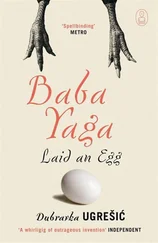To understand the pulsing shuttle of the historical grid: with that he was to begin the first of his series of essays, which, appearing one by one at regular intervals, were eagerly snatched up by his few mental compeers… The theoretical approach to history and its laws is still alive. No doubt it has suffered a severe setback in the course of this century, in which certain malignant phenomena in the human organism have revived absurdly chaotic ideologies of a mythical, religious or fatalistic nature that exist side by side with the most banal sociological generalities. Yet the historical process itself has continued; it is inherent in human behavior and has its own laws that render it both predictable and quantifiable. It moves irreversibly forward, never revolving in place, though increasingly complex and tortuous attempts to shortcut it have frequently blurred its clear course. Is it possible to construct a reliable and measurable method that will account for the success or failure of such shortcuts, which are the essence of practical politics, within the readily discernible outlines of the historical process itself? Are even the most chimerical attempts to oppose or circumvent this process governed by laws of their own? In this series of essays I shall attempt to build and verify such a model based on a study of the history of the nineteenth century taken as one homogeneous unit. Undeniably I have taken upon myself a highly ambitious task…
We were exhausted when we got off the bus in Haifa. Father stumbled going down the stairs and had to shut his eyes and lean against one of the big concrete columns of the terminal. I took his valise and he walked slowly on, head down and arms dangling, through the dark wide passageways that echoed with the screeches of the buses. All at once Kedmi popped out of some exit.
“It’s about time! What happened to you? I was about to try the lost-and-found department. The two of you look as depressed as though you’d just landed on the moon.’’
Father looked right through him. He glanced about, then left us without a word and crossed the passageway to the men’s room. Kedmi winked jovially.
“This is his big day. Believe me, though, he never should have come. All I needed was one more time alone with your mother to get her to finish thinking. But who can stand up to you all? Come, there’s another Kaminka-and-a-half eagerly awaiting you.”
He took me to a corner table in the cafeteria. Once again I was struck by the sheer size of Gaddi, who sat there with a big shiny bright toy locomotive. I smiled at him and mussed his hair. He didn’t smile back.
“We’re old phone pals, aren’t we, Gaddi?”
He nodded.
Ya’el sat hunched, soft and pensive, in a big gray windbreaker, her smooth, unlined face looking broader than ever. I dropped into a chair by her side. Should I kiss her? She made a face, then shut her eyes, put her arms around my head, and kissed me. Her so feminine skin.
“Who’s looking after the baby?”
“Kedmi’s mother,” answered Kedmi with a twinkle.
“Dina couldn’t come with you today?”
“No. And it wouldn’t have been a good idea.”
“I don’t suppose it would have. How is she? I haven’t seen her for so long.”
“The same. She’s still working on and off at the same place.”
Kedmi chuckled abruptly at a joke he’d just told himself. Ya’el smiled nebulously. She started to say something but Kedmi beat her to it.
“You’d better hustle, Asa, if you want to eat something. The train is leaving soon. We’ve got our work cut out for us.”
“The train? What train?”
“Surprisingly enough”—he laughed—“there is one. And you’re going to Acre on it. Relax. I promised Gaddi. It will be an experience for you too. The station in Acre is near the rabbinate building. From there you’ll take a cab to the hospital, and I’ll pick you up at five. It’s been all decided. I’ve got to run to see my murderer now. I still have to earn a little money here and there, your father hasn’t put me on a retainer yet…”
Through the plate glass I saw father come out of the men’s room. He halted confusedly, then headed in the wrong direction. Kedmi grinned and roused Gaddi. “Go get your grandpa before we lose him.”
“What’s with him?” asked Ya’el. “How was his visit with you?”
“Fine. He actually seemed in good spirits.”
“Yes. He seems happy.”
Gaddi ran up to father and poked him in the back. Father bent and hugged him warmly, then picked him up and kissed him with an emotion that surprised me. The toy looked excited too and kept pointing at the locomotive that he held. They returned to us with their arms around each other. Ya’el got up to hug father. His face was wet, his hair damp. There was a faint smell of vomit about him.
“I didn’t feel good. I don’t know what happened to me all of a sudden.”
“It was your fear,” blurted Kedmi without looking at him.
“Fear of what?”
“Never mind…”
A nauseating man with a nauseating sense of humor.
Father made a move to sit down but Kedmi began giving him orders too.
“Go eat something. It won’t help any to be hungry.”
“Sit, father,” I said. “I’ll bring you something. What would you like?”
“Just tea and cake or something. But wait a minute…”
He reached for his wallet and took out some dollar bills.
“I don’t need them,” I said.
Kedmi hovered jocularly around us. “You still haven’t changed your dollars, eh, Yehuda? You’re a rational man, you know a dollar changed tomorrow is worth two changed today…”
Father interrupted him short-temperedly. “Where is there a bank around here?”
“Not now… not now…’’ we all exclaimed together.
“But I have to. I must.”
“Come here, I’ll change them for you. How much do you want?”
Father gave Kedmi a hundred-dollar bill. Kedmi held it up to the light, grinning impishly. “There are counterfeits making the rounds.” He picked up a newspaper to check the exchange rate and showed it to father.
“Fine, whatever you say,” mumbled father with loathing.
I went to get lunch and returned with it. I said nothing, watching them remotely from some tenuous, still point inside me. Gaddi stared at the loaded tray that I’d brought. Father forced some pound notes on me. Kedmi grinned. Ya’el kept her eyes silently on father. Where is Dina now? People came and went. Dishes clattered. Jerusalem seemed a world away. The morning’s lesson. Kedmi scurried about, conversing with people, scanning newspapers. At one point he furtively slipped me some document. “If you can catch her between the acts, see if you can’t gently get her to sign this. It’s a copy of the agreement that I gave her. If you don’t stay cool, who will?”
I said nothing.
At two o’clock we were standing by the train. Kedmi put us aboard as though we were luggage, finding us our seats, buying us our tickets. He’d put father’s valise in his car and given him a yellow cardboard file holder which said Chief Rabbinate on it. There was nothing he hadn’t made his business in his revoltingly jovial way. How did the two of them live together? But Ya’el was her usual patient, passive self, thoroughly held in check, always ready to give in, to let him poke his nose everywhere, even go through her purse.
“Why do you all look so alarmed?” he called to us from the platform. “Don’t worry. It’s an honest-to-goodness train. It will be an experience. I’ll come to get you at five, five-thirty. Gaddi, don’t forget your locomotive on the train. And ask your uncle to show you around it.”
He waved at us and departed, leaving us out of time in the still, empty train. A hell of an experience to have to go through for the boy’s sake. What was I doing here? I wondered. I felt paralyzed, dog-tired. I watched Ya’el open a large plastic bag and take out a big blue woolen shawl and a flowery robe to give father to give mother as presents. He accepted them gratefully, and together they removed the Israeli labels. Slowly the train began to move. It crept along through the freight yards of the port, among cranes, past ugly factories, warehouses and grim garages, stopping for no reason and starting up again, nearing some blocks; of public housing. Father was restless. He chain-smoked, asked about relatives, sighed, combed his hair. “I won’t say a word there,” he promised again. “I’ll let you do the talking. Asa will go first.” He opened the cardboard file holder that Kedmi had given him and studied its contents.
Читать дальше












